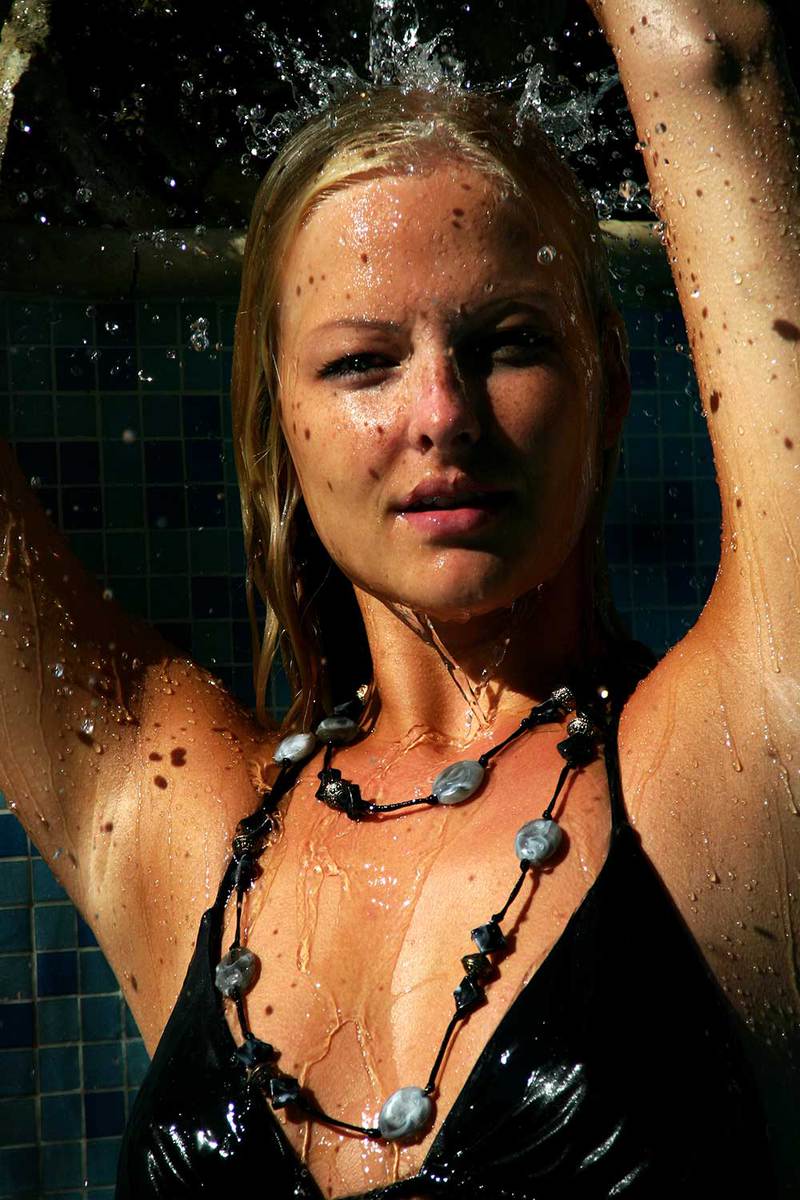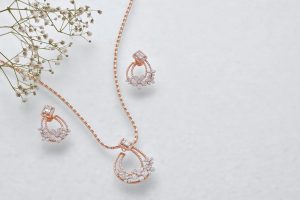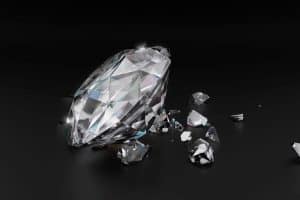
This article may include affiliate links and elements that were carefully created by our team using advanced ai to help you envision the best style advice.
Water doesn’t necessarily cause harm to sterling silver, but it will speed up the oxidation process. And, while yes, you can shower with your silver necklace on, you might not want to.
Water, especially shower water, seems like it would keep a necklace or any piece of jewelry clean. And, well, to a certain extent it does. Read on as we explain oxidation in-depth and help you understand how to best care for your precious metal.
What Is Sterling Silver?
Sterling silver is composed of silver and other durable metals like copper or nickel. To be sold as “sterling” the silver part must be 92.5% by weight of the metal. Pure silver is too soft to craft into jewelry which is why other metals like copper are used to add strength.
It’s these other metals, like copper, that react to moisture and air causing silver to darken or tarnish.
Sterling silver is an excellent, long-lasting choice for a necklace. Don't worry if you forget to take off your necklace before you shower. And, don’t fear the tarnish. Your silver is an investment. A little TLC goes a long way in keeping your silver glimmering for a lifetime.
Can You Shower With Any Necklace On?

Necklaces can be crafted from an array of materials like precious metals or leather or pearls. Depending upon the type of textiles or metals used in creating your necklace, you might be able to shower with it on.
Let’s look at some popular materials used in jewelry design and determine if you should keep your necklace on or take it off when you shower.
Platinum
The most precious metal used in jewelry, platinum can endure a shower. No harm will come to your platinum necklace by wearing it in the shower but in time the finish won’t be as sparkly.
Our advice: Keep it on.
Gold
Wearing solid gold like 14k or 18k in the shower won’t harm the metal. Gold won’t oxidize like the copper in sterling silver. Over time, your necklace might lose some luster if you shower with it every day.
Our advice: Keep it on.
Silver
The base metal in your sterling silver piece will oxidize at some point. And, like with gold you might lose some shine over time. But a shower won’t harm your necklace.
Our advice: Keep it on.
Plated silver or gold
Jewelry that is plated means that there is a thin layer of a metal like gold or silver over another metal like copper. This layer will wear off over time. Exposure to elements like water will speed up the wear and tear process.
Our advice: Take it off.
Stainless Steel
Stainless steel is used to create lovely fashion jewelry at a much lower price than gold or silver. But, the quality of steel varies widely. Water can cause your necklace to rust.
Our advice: Take it off.
Pearls
The organic nature of pearls makes them delicate. While fine to use a bit of water to clean them occasionally, prolonged exposure to water will eventually damage their beauty.
Our advice: Take it off
Leather
Naturally soft and pliable, leather doesn’t mix well with water. Wet leather is stripped of its natural oils and will stiffen, eventually cracking as it dries.
Our advice: Take it off.
Although some necklaces don’t need to be removed before you shower, it might be best to remove them anyway. Daily exposure to elements and beauty products take a toll on even the most highly durable materials. Keep your bling shining longer and consider giving it rest while you bathe.
Can You Get A Sterling Silver Necklace Wet At All?
We’ve established that water won’t harm a silver necklace, but it might change the look over time. Constant exposure to water will reduce the shine of your necklace. And certain types of water can expedite the blackening or tarnishing process.
Here are some guidelines for the different types of water you might encounter:
- Shower: Most tap water doesn’t contain harsh chemicals and is safe for your jewelry to be exposed to. Soap and water clean away skin oils, lotions, and perfumes which contribute to the tarnishing process.
- Pools or Hot Tubs: These water sources are relaxing but generally contain a lot of chlorine. And hot, humid environments coupled with chemicals might quickly give your necklace a black finish.
- Mineral or hot springs: It’s likely that you will encounter sulfur in natural springs. Sulfur will almost always cause the copper in your silver necklace to oxidize at a rapid pace.
Remember, it’s not the water you need to worry about as much as what might be in the water. And, an oxidized piece of jewelry isn’t ruined, it just needs some care.
How Do You Care For A Sterling Silver Necklace?
A precious metal like silver needs special care. Your sterling silver necklace is stable but the constant exposure to air, moisture and beauty products will reduce its luster. To keep your jewelry looking its shimmery best, make sure to properly clean, dry and store your necklaces when not in use.
Here are tips for caring for your necklace:
Cleaning
Polishing Cloths
Composed of soft materials, polishing cloths are ideal for removing tarnish and restoring shine. Some products are simply cloths, others contain a cleaning compound. While polishing, you will see dirt and black residue covering the cloth as your piece begins to gleam again.
Homemade Cleaning Solutions
Cleaning a heavily tarnished necklace might need some elbow grease. We don’t recommend using a silver cleaning product. Rather, start with a mild soap and tap water. If you need a bit more cleaning power create a solution of baking soda and vinegar. Let the solution do its thing, then rinse, dry and polish your necklace.
Storage
Air contributes to silver tarnishing. You can store your sterling in an airtight plastic bag or a tarnish-proof cloth bag. And, if you can track down moisture-absorbing silica gel or activated charcoal packets, add them to the bag or box where you plan to store your jewels. Reducing moisture reduces tarnishing.
Designate a place to store your sterling and keep it away from other metals, rubbers or wood. Other materials might contain acid or sulfur that can cause your necklace to tarnish.
Protect Your Investment, Even In The Shower
Assuming you don’t bath in harsh chemicals or salt, you can wear your sterling silver necklace in the shower. Keep in mind that sterling silver is a precious metal that requires maintenance. To keep your necklace in its best condition clean and polish it regularly.



